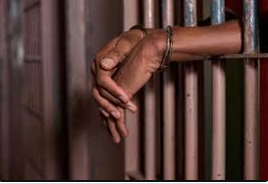
Uganda’s prisoner population surges, raising fears of COVID-19 outbreak
Uganda has recorded a 10% increase in the number of people in jail since March, a prison official told Reuters on Friday, with thousands jailed for alleged violations of coronavirus lockdown rules.
By imposing one of Africa’s strictest lockdowns, the country of 42 million has registered just 1,213 COVID-19 cases and five deaths from the disease, despite crumbling public hospitals, doctors’ strikes and corruption scandals.
But there have been at least three cases of the novel coronavirus in jails, fuelling concerns it could spread among prisoners. About 30 inmates who feared infection have escaped since the pandemic hit Uganda, though some have since been recaptured.
“Fear of contracting COVID-19 has been fuelling anxiety among inmates and we had mass escapes at two prisons,” said Frank Baine, spokesman for Prisons service.
Correctional facilities worldwide have been fertile ground for COVID-19. Africa’s prison population of more than 1 million is especially vulnerable because of overcrowding, malnutrition and limited healthcare, health experts say.
Authorities in Togo, Democratic Republic of Congo, South Africa and Kenya have reported COVID-19 outbreaks in their prisons.
The number of prisoners in Uganda has risen from 59,000 to 65,000 in five months, exacerbating overcrowding, Baine said, adding that lockdown violations — such as defying curfews, travel bans and restrictions on using vehicles — accounted for the unusually large increase in inmates.
“During the lockdown, people continued to commit crimes but the justice system more or less came to a standstill so the prisoner population inevitably went up,” Baine said.
Uganda’s jails can comfortably accommodate only 20,000 inmates, according to the prisons service.
“Anything beyond 20,000 is stretching our capacity,” he said, adding that an amnesty by President Yoweri Museveni for some violators of COVID-19 regulations was now starting to reduce the prisoner numbers.
During the lockdown, a ban on private and public vehicles prevented some inmates being taken to court for hearings and some were unable to travel home immediately when they had served their sentences.






